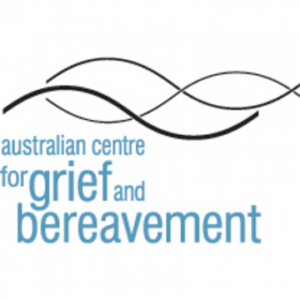Older Australians make up a considerable proportion of Australia’s population, with 16% of people aged 65 and over as at 30 June 2020 (https://www.aihw.gov.au/reports/older-people/older-australians/contents/summary). They are a diverse group with different backgrounds, life experiences, and lifestyles that influence their aging process and affect their health and wellbeing.
Digital mental health resources are a great resource in the toolkit of any healthcare professional, as a referral resource, o support clients between sessions and/or to support your work in session. However, digital mental health doesn’t work for everyone. For some digital mental health may be a great option to support their goals and improve treatment outcomes, but digital hesitancy can present a barrier.
Digital hesitancy is characterised by concern, worries or anxiety around new technology and a resistance to adopting digital approaches. Older Australians are one of the largest groups most likely to be experiencing concerns and low confidence with technology. More than half of all Australian adults aged over 50 describe their digital literacy as low to none (https://www.esafety.gov.au/research/digital-behaviours-older-australians/digital-confidence), with digital literacy decreasing with age.
While many older Australians would like to use the internet and technology more, barriers like low digital literacy, safety concerns and the challenge of learning something new can keep them from trying.
Health professionals can introduce digital mental health to older Australians by asking about their confidence with technology, checking what technology they have available, exploring what they would be open to trying, and what their biggest worries. Showing a program or resource to a client and helping them login if required is often a good place to start. Health practitioner enthusiasm is one the biggest drivers in a client using a digital mental health program or tool.
The following website can also be helpful to recommend to older Australians who want to learn more about utilising technology to access online mental health supports.

Be Connected
https://beconnected.esafety.gov.au/
An Australian Government initiative aimed at increasing the confidence, skills and online safety of Older Australians when they use the internet.
Resources for Older Australians to get started with
Choosing the right service for the right person is an important first step to not only enhance your practice, but increase your patients and clients confidence with technology overall. The resources below were designed specifically for older adults to address their unique problems and concerns.

Aged Care Grief and Bereavement Service
ph: 1800 22 22 00
Phone and online counselling and information for people living and working in aged care, and their families and supporters.

Compass
ph: 1800 353 374
Information and resources to help tackle elder abuse, including a telephone advice line.

Dementia Australia
ph: 1800 100 500
Dementia Australia provides information, resources, counselling (telephone and webchat), and support for people living with dementia, their families and carers.

Inclusee
ph: 1800 287 687
A social connection program that connects seniors to friendly volunteers, supporting them to be happy, healthy, and socially active.

MindSpot
Wellbeing Plus Course
url: https://www.mindspot.org.au/course/wellbeing-plus/
Online courses which help adults aged 60 years and older learn to manage symptoms of depression and anxiety. The course includes assessment, feedback and therapist support.
Enhancing your practice with digital mental health for older Australians
BDI x eMHPrac Webinar 49 | Loneliness and its impact on the mental health of older patients
This webinar discuss how GPs and Allied Health Professionals can reduce the negative impact of loneliness on the mental health of older patients. It explores how loneliness impacts older Australians and their mental health, and how GPs, Psychologists and other Allied Health Professionals can identify loneliness in older patients, and utilise resources to reduce the impact of loneliness on older patient’s mental health.
BDI x eMHPrac Webinar 53 | Overcoming barriers to e-mental health interventions
This webinar examines some of the online mental health treatment programs that GPs and Allied Health Professionals need to know about and how they can be used in their practice. It identifies common barriers to e-mental health interventions and explores some strategies GPs and Allied Health Professionals can use to overcome the challenges with clients and patients.
BDI x eMHPrac Webinar 57 | Setting you up for success with e-mental health
This webinar provides health professionals with key insights and digital resources that you can begin to integrate immediately into their everyday practice. The webinar explores different ways e-mental health can be incorporated into clinical practice, matching tools to patient needs, and strategies clinicians can use to successfully identify appropriate patients for e-mental health interventions, and how to introduce and support them in a way that best maximises success.
Read our blog ‘The digital divide in mental health and how health practitioners can help close it to’ learn more about bridging the digital divide for your older adult and other patients and clients.





